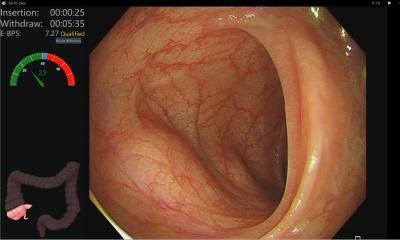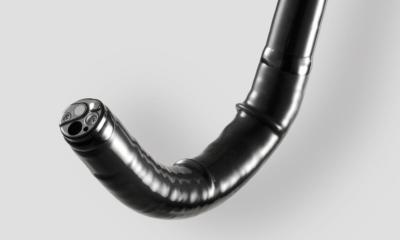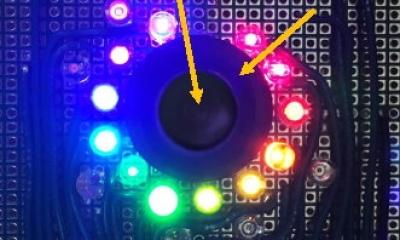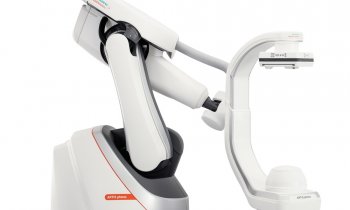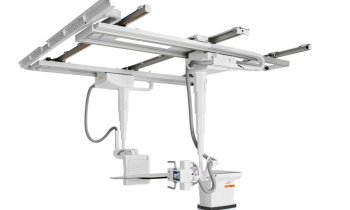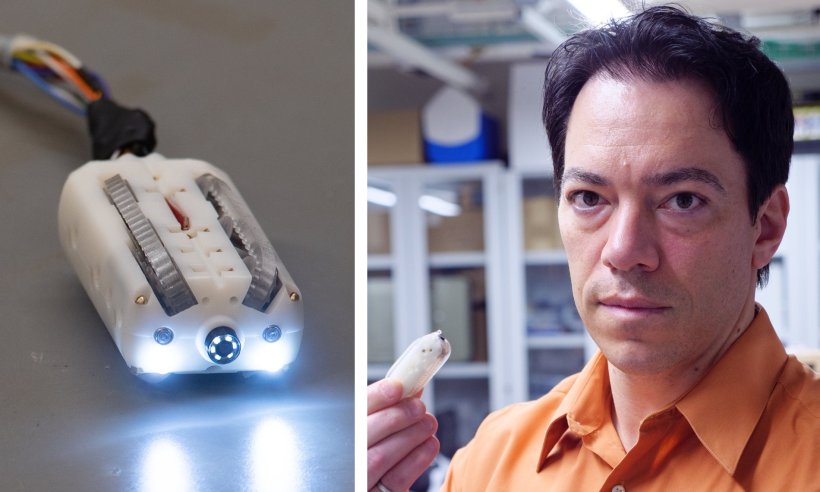
Photo credit: University of Colorado Boulder College of Engineering and Applied Science
Article • Endoculus
Robotic ‘mini-tank’ to enhance colonoscopy techniques
A miniature colonoscopy robot developed to collect images and biopsies could have clear benefits for both patients and endoscopists. The device, which carries a camera and uses other small surgical tools, uses tank-like treads to proceed along the patient’s colon under the control of a gastroenterologist, instead of the current ‘pushing’ technique to propel the endoscope manually through the colon. This means advantages for the patient in terms of less friction and discomfort, as well as having ergonomic benefits for surgeons.
Report: Mark Nicholls
The device, called the Endoculus, has been designed by a team at the Advanced Medical Technologies Laboratory (AMTL) at the University of Colorado in the United States. Professor Mark Rentschler, director of the AMTL, who leads the project, explained the current version of the device began in earnest in 2016 with PhD students Greg Formosa and Micah Prendergast advancing the mechanical and electronic design. It has now reached the stage of adding more autonomous capabilities and features to further the understanding of its capabilities as the team look to transition the project into a commercial product that is affordable and tested clinically.
If you can have less of a manual approach, the upside for the physician is that they can focus on diagnostics and treatments, not just access
Mark Rentschler
‘The idea was originally to make a capsule device that can be tethered and can propel itself around to enable remote endoscopy,’ explained Professor Rentschler. ‘There are a few things tied to that; one is just capability and ease, but also a lot of the mental energy and effort from surgeons is focused on getting to where they need to go with the scope, rather than just focusing on visualisation. So, if you can have less of a manual approach, the upside for the physician is that they can focus on diagnostics and treatments, not just access.’ With chronic shoulder and elbow problems being a well-known strain on endoscopists related to this heavy manual work over long periods of time in theatre, this is not just a matter of enhanced convenience.
Reducing the strain on endoscopists and patients
The robot is the size of a small film cannister and can be used on patients without causing discomfort, but the team is looking to make it smaller still.
Familiar, yet different
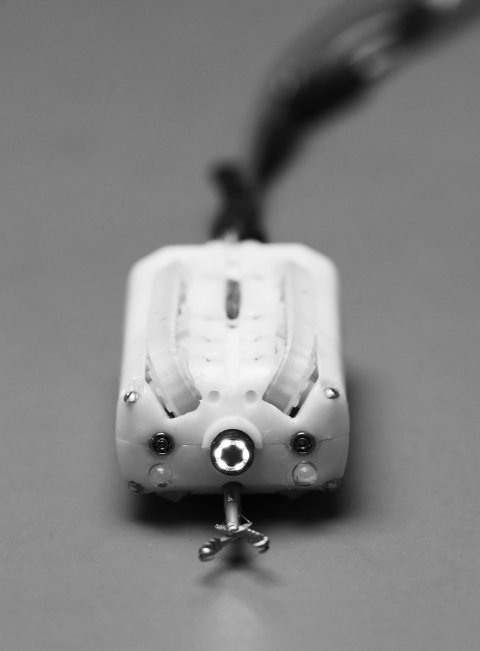
Photo credit: University of Colorado Boulder College of Engineering and Applied Science
As a motorised colonoscope, the Endoculus has all the standard capabilities of an endoscope, with an onboard camera and lighting, channels for irrigation, inflation and suction, and a port for conventional tools. ‘Our device needed to have visualisation and tool access, but we want the device to focus on mobility, traction, and manoeuvrability,’ Rentschler added. ‘Ultimately, we wanted to approach this as a remote device that the physician can control and get to where they want it to go.’
The group is looking at options to design portions of the device for single use, with motors off board and the power transfer through its tether. ‘We are trying to add new capabilities to the physician suite but not radically change their approach from an operational standpoint,’ the robotic expert added.
From push to pull
The device offers benefits to surgeons and patients. ‘The patient benefit is more comfort and less pain,’ Rentschler said. ‘With endoscopy, distension of the wall from endoscope pushing is where discomfort occurs for the patient. The key for us is to transition away from push endoscopy where the physician is pushing, to pull endoscopy, where device at the end of the tether is pulling it softly through the colon.’ With the surgeon, the reduced physical effort helps avoid common injuries associated with the task.
For populations with a tortuous, or strange, colon pattern, it can be challenging for physicians to reach the cecum at the beginning of the colon to get a full colonoscopy, so consistently getting a complete procedure is also a strong upside for the device, he said.
Photo credit: University of Colorado Boulder College of Engineering and Applied Science
From testing to clinical practice
The device is a few years away from use in clinical practice but has been tested on animal tissue laid out in the form of human anatomy. The plan is to launch a company to establish the product, with a view to procedures in humans within three years. ‘We have focused long and hard on the clinical aspect, but we really need to make sure of the commercialisation aspects of it to keep it moving forward,’ said Professor Rentschler.
The team believes the Endoculus could eventually replace traditional endoscopes used in colonoscopies and endoscopies and lead to earlier detection of cancers enabling better outcomes.
Profile:
Mark Rentschler is Professor of Biomedical, Mechanics of Materials, Robotics and Systems Design and director of the Advanced Medical Technologies Laboratory (AMTL) at the University of Colorado in the United States. His research is focused on intelligent medical devices and surgical robotics for patient-specific medical care and include design of novel surgical tools, devices, and robotics, and characterization and modelling of how these interact with the patient.
17.02.2022



